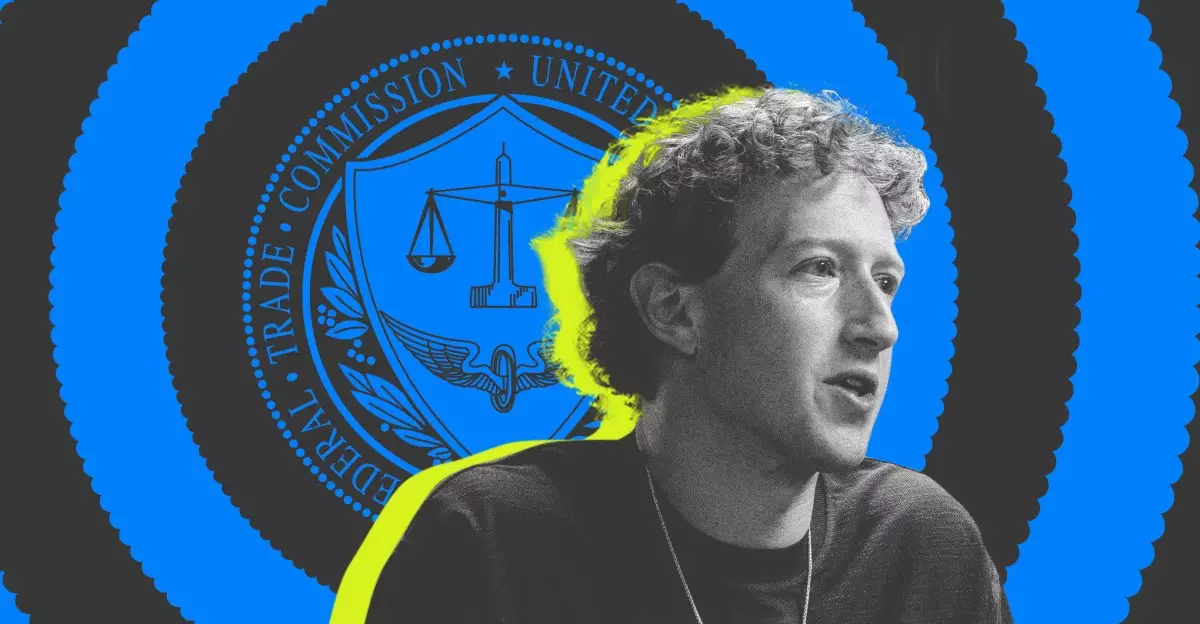The evolution of Meta, formerly known as Facebook, represents one of the most enthralling narratives in the tech industry. Mark Zuckerberg, the founder and CEO, has navigated a tumultuous landscape filled with both groundbreaking decisions and missed opportunities. Recent developments surrounding the Federal Trade Commission (FTC) and their antitrust case against Meta highlight how close the company came to taking different paths that may have transformed its trajectory entirely. As Zuckerberg sits before a courtroom, recounting his strategic contemplations about acquisitions and market competition, we are offered a rare glimpse into the uncertainties that shaped a digital empire.
Exploring Unkept Opportunities
Zuckerberg’s testimony has illuminated several pivotal moments that could have defined a different Meta. For instance, the notion of acquiring Snapchat for $6 billion—a bid famously turned down by Snapchat’s CEO Evan Spiegel—raises significant questions about how that would have altered the competitive landscape. With Snapchat under its belt, Meta would have had a stronger foothold in the ephemeral messaging space, which has since become a formidable segment of social media. The decision not to pursue such a lucrative acquisition is not simply a cautionary tale of a missed opportunity; rather, it opens discussions about the strategic mindset of a tech behemoth that would rather absorb competition than foster coexistence.
In hindsight, Meta’s trajectory may have been less about expansion through acquisition and more about innovative development—an inspiring combination that could have put it at the forefront of user engagement without necessitating the aggressive buyouts that now attract scrutiny. This leads us to question if Meta’s strategy is reactive rather than visionary.
The Complexity of Market Definitions
The courtroom battles reveal another critical dimension—the evolving definitions of market competition. The FTC’s argument hinges on the premise that Meta’s acquisitions were driven by fear of losing its dominance, thus simplifying the narrative of marketplace competition to a cut-and-dry feud between giants. However, Zuckerberg’s insights portray a fragmented and fluid landscape not restricted to traditional social media platforms. His focus on competitors like TikTok and YouTube suggests that Meta’s challenges are not merely binary; they are complex, requiring agile and adaptive responses.
This notion of fluidity is vital in analyzing Zuckerberg’s strategy. It underscores that in tech, roadmap flexibility can serve as a competitive advantage. What if Meta had embraced more than just its existing products and examined the broader ecosystem? If the company’s leaders prioritized collaboration over acquisition, it could have fostered a more nuanced approach to evolving consumer needs—which, paradoxically, might have staved off regulatory pressures that threaten to dismantle its empire today.
The Ethics of Ad Monetization
One of the most striking aspects of Zuckerberg’s court testimony is the insight into Meta’s advertising strategies. He alluded to a controversial consideration of creating a feed dedicated solely to advertisements, drawing a stark line between user-generated content and monetization. This prospect ignites ethical discussions surrounding user experience and engagement. By prioritizing advertisement volume, are companies effectively sacrificing community-building in favor of profit?
Zuckerberg’s arguments hint that user engagement with ads may not be as bothersome to consumers as one would assume. However, the question remains: what does that say about the company’s understanding of user psychology? While Meta may have generated enormous ad revenue, it simultaneously exposes itself to a cycle of dependency on consumer tolerance. This precarious balance raises a fundamental ethical question in the social media realm: to what extent should companies balance profit motives with genuine community interests?
Reflecting on Unveiled Leadership Philosophy
Zuckerberg’s willingness to share internal dialogues with his initial team members reflects a unique aspect of leadership often overlooked in business narratives. The discussion around wiping users’ friend lists signals a return to simplicity—a longing for a fresh start that belies an internal struggle with innovation versus stagnation. Instagram, the very app Zuckerberg aimed to protect, could have been preemptively spun off, and its triumph might have been a testament to independent innovation rather than just a Meta property.
This evolving leadership philosophy raises pivotal questions about accountability in a corporate landscape defined by connectivity and trust. By opening the doors on his decision-making processes, Zuckerberg invites scrutiny not just into Meta but into the broader corporate culture that governs Silicon Valley. Are tech leaders, like himself, tethered to a growth-at-all-costs mentality that ultimately disregards the sanctity of user connection?
Through vigorous market challenges and cascading ethical dilemmas, the saga of Meta unveils manifestations of ambition, uncertainty, and human impact. As Zuckerberg’s story continues to unfold, it leaves an indelible mark on the way we perceive technology’s role in society.

